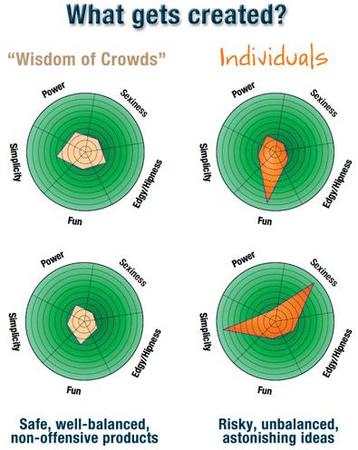| The Dumbness of Crowds | 2007-01-10 20:15 3 comments |
 by Flemming Funch by Flemming FunchVery nice article at Passionate about when crowds become smart and when they become dumb. "Collective intelligence" is a pile of people writing Amazon book reviews.And the main point here: It's the sharp edges, gaps, and differences in individual knowledge that make the wisdom of crowds work, yet the trendy (and misinterpreted) vision of Web 2.0 is just the opposite--get us all collaborating and communicating and conversing all together as one big happy collaborating, communicating, conversing thing until our individual differences become superficial.I agree. A crowd can become smart mainly because it is a collection of individuals, who're different, who have different knowledge, different resources, different viewpoints, and somehow a synergy emerges in what they do. Their different pieces complement each other, and something bigger becomes possible. It isn't that there's any great wisdom in averaging what a lot of people think. A vote by majority is pretty dumb. Lots of people applying their unique skills to working together - that can be really big. |